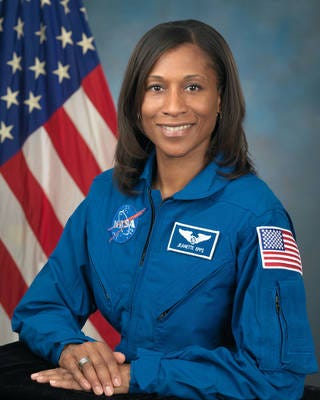So What, Who Cares (vol 3, issue 9) Why citizen rights are suddenly a concern for tech companies
Hello!
*
I ended up taking a week off SWWC because I was at RSA 2017, a tech event centered around security and assorted tech industries. The thing about going to any tech show in San Francisco is it has the long hours of a business trip AND THEN you get to come home and do household chores! Every day!
But! It does give me a fun firsthand item for this issue's topic ...
Microsoft is not playing when it comes to Internet security -- and it's just put pressure on world governments. Brad Smith, president and chief legal counsel for the company, gave a keynote on Tuesday, February 14, that basically put tech policy wonks worldwide on notice. The tenets of the talk were both simple and radical:

1. State-sponsored hacking (i.e. when one country's government is paying people to breach computer systems) is a form of warfare.
2. As of right now, the "battlefield and the first line of defense" are the private companies fielding most of these attacks on their users -- and these companies have to deal with damage on two fronts: handling the customers who have been breached and mounting a defense against another nation's malicious hackers.
3. Microsoft considers state-sponsored hacking to be one nation attacking another's citizens.
4. It is a government's responsibility to protect its people from other nation's attacks.
4. Therefore, the governments of the world need to step up and protect their citizens from nation-state digital attacks.
The solution proposed during Smith's keynote is two-fold: First, Microsoft thinks it's time for a Digital Geneva Convention, so that tech companies can outline how they will and won't behave in cyberwarfare. This Geneva convention would be something world governments also sign on to. And second, Microsoft calls on the tech industry to be a "digital Switzerland" that does not aid or abet any government in cyberwarfare.
So what? This is the first keynote in which a corporation has explicitly drawn a line between state-sponsored hacking, the people it affects, and said, "This should be considered war and citizens should be angry their government isn't protecting them."
Who cares? For the tech industry to get this overtly political about anything other that H1-B visas or customer privacy is unusual -- yet "state-sponsored hacking is war and we need our governments to stop assuming corporations will fight their battles" is a theme I heard in multiple RSA keynotes.
We are about to see a lot of tech companies argue that it should be public policy to protect tech customers-cum-citizens. We are also about to see which governments are willing to treat cyberwarfare as a tenet of statecraft. And we will see which companies are going to decide that governments and agreements are for suckers and they're disruptive for any of this.
*

Today, when I went to The Cut to catch up on New York Fashion Week coverage, I fell into an excellent Q&A with Jeannette Epps, PhD. Not only is she an actual rocket scientist, she will be the first black astronaut to fulfill a mission on the International Space Station.
Did you know that only sixteen black men and women have been in NASA's astronaut corps? And did you know that Dr. Epps will be only the fourth black women to slip the surly bonds of earth?
To put those numbers into perspective: As of five years ago, NASA had sent at least 334 astronauts into space. As of right now, there are 45 active astronauts, 296 former astronauts (who have flown missions, then left NASA) and 25 management astronauts no longer eligible for missions, for 366 astronauts. And we're only getting around to this first for a black astronaut now.
Dr. Epps' interview talked about Hidden Figures:
The big thing that I want people to take away from a movie like that is that you can contribute to human exploration of space. You can be the next Katherine Johnson. The fact that everyone was contributing, and doing their work with excellence, shows why it’s important to look at what you love to do and assess how you are contributing.
*
Your pop culture moment of the day: I read "New York Fashion Week Isn't Fun Any More" and stopped cold once I got to this quote:
"The ‘90s were so much more about the clothes on the runway,” agrees Paper’s Mickey Boardman. “ ... At the Todd Oldham show, the photographers stood right along the runway, and Veronica Webb would walk by and pose for each one of them. It took her like five minutes to get down the catwalk, and those were the only pictures from the show, really. They’d have to go home and develop them, and the next day — if you were lucky! — you’d see them in the Times or Women’s Wear Daily."

All you Netflix subscribers, go stream Isacc Mizrahi's Unzipped right now. The scene where Mizrahi wakes up early and goes down to a news stand to buy papers and read reviews of his show? It's closest the average person will ever get to time travel -- you can watch that scene and marvel about how every circumstance around that ritual has disappeared.
Also, speaking of Todd Oldham, I picked up a used copy of Kid Made Modern and it is the best crafts book for people who want to give a child in their life a primer on modernism while also making cute crafts. I love the Anni Albers-inspired "Great Balls of Foil" bracelet and am looking for an excuse to make it with my girl's Daisy troop next Sunday.
*

